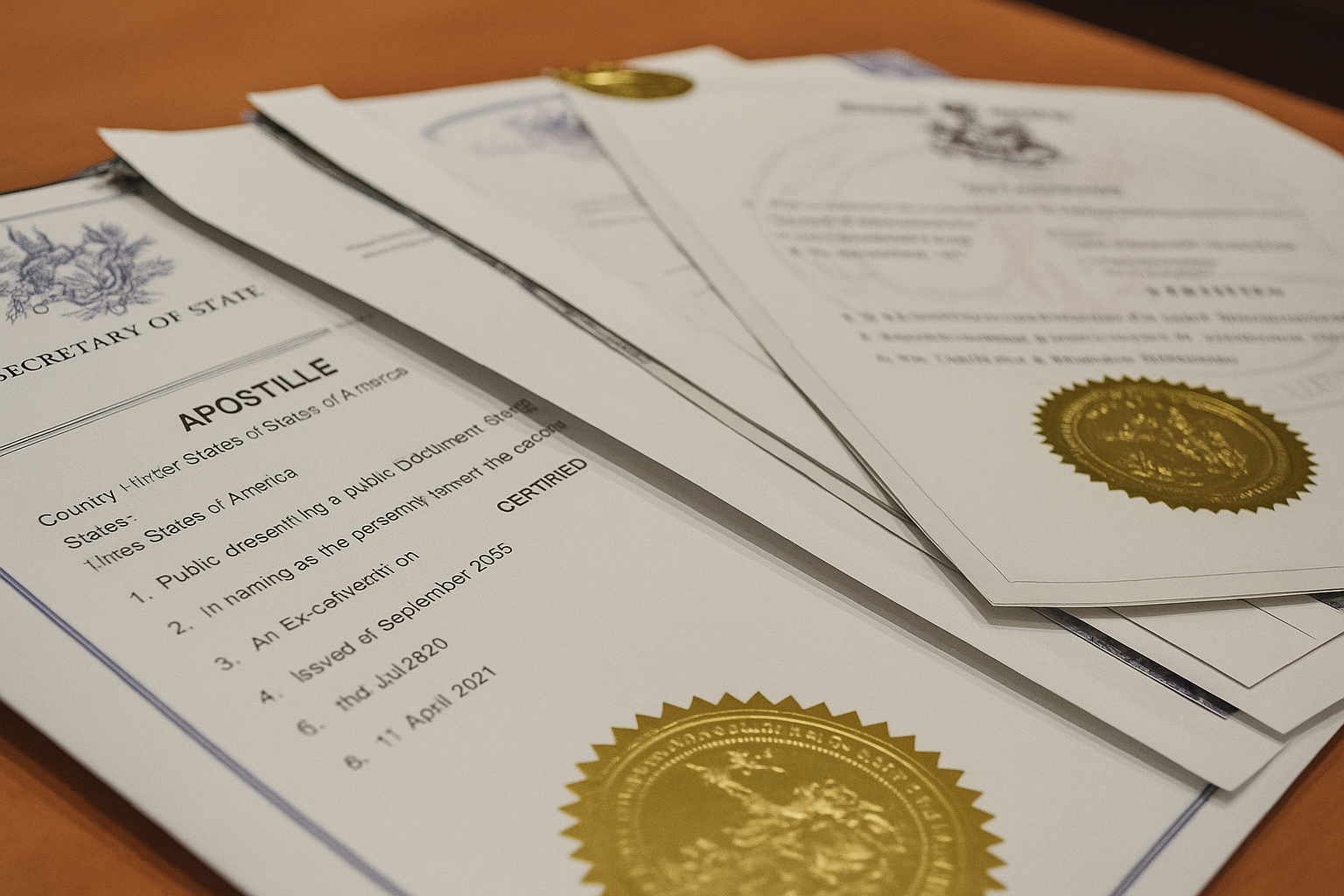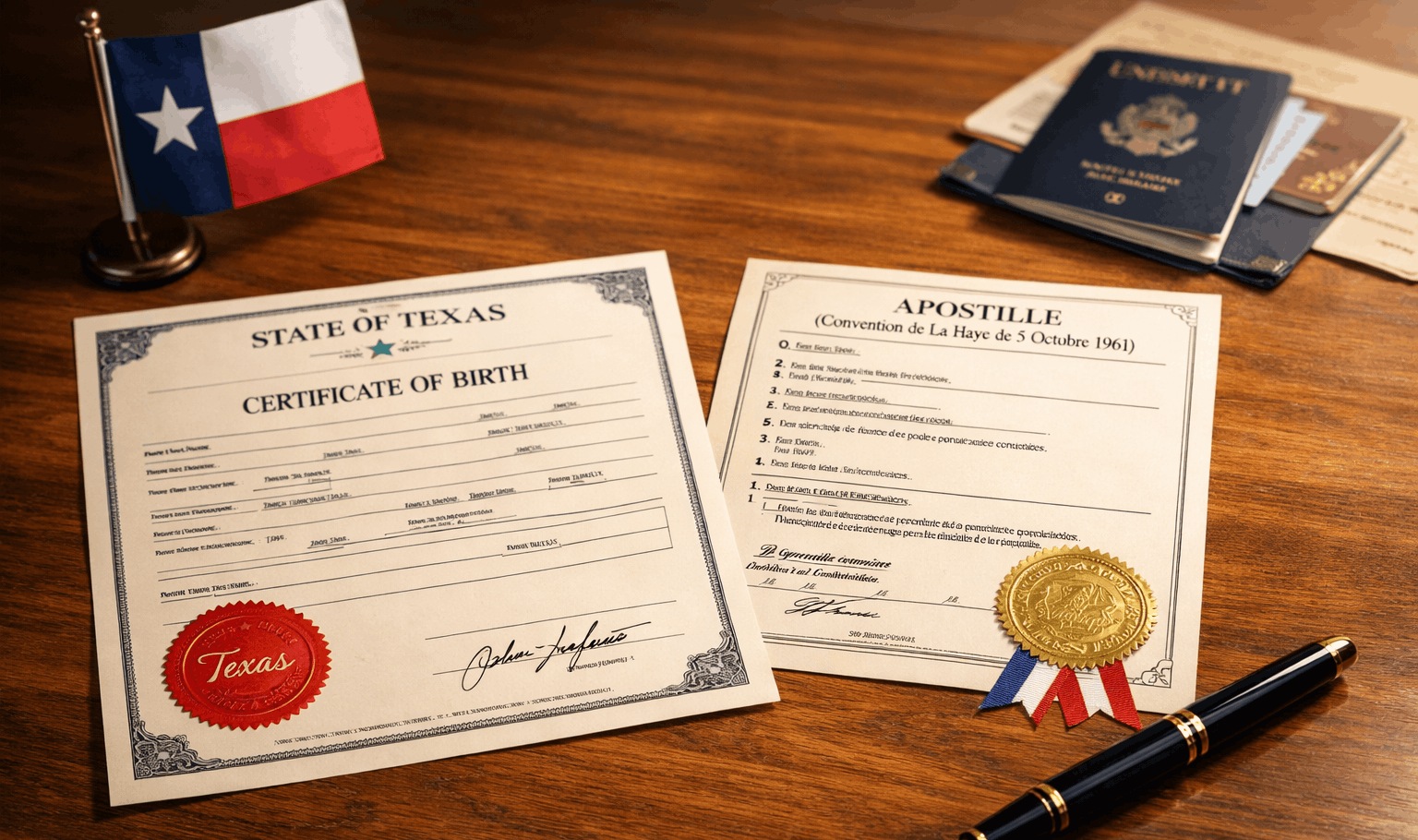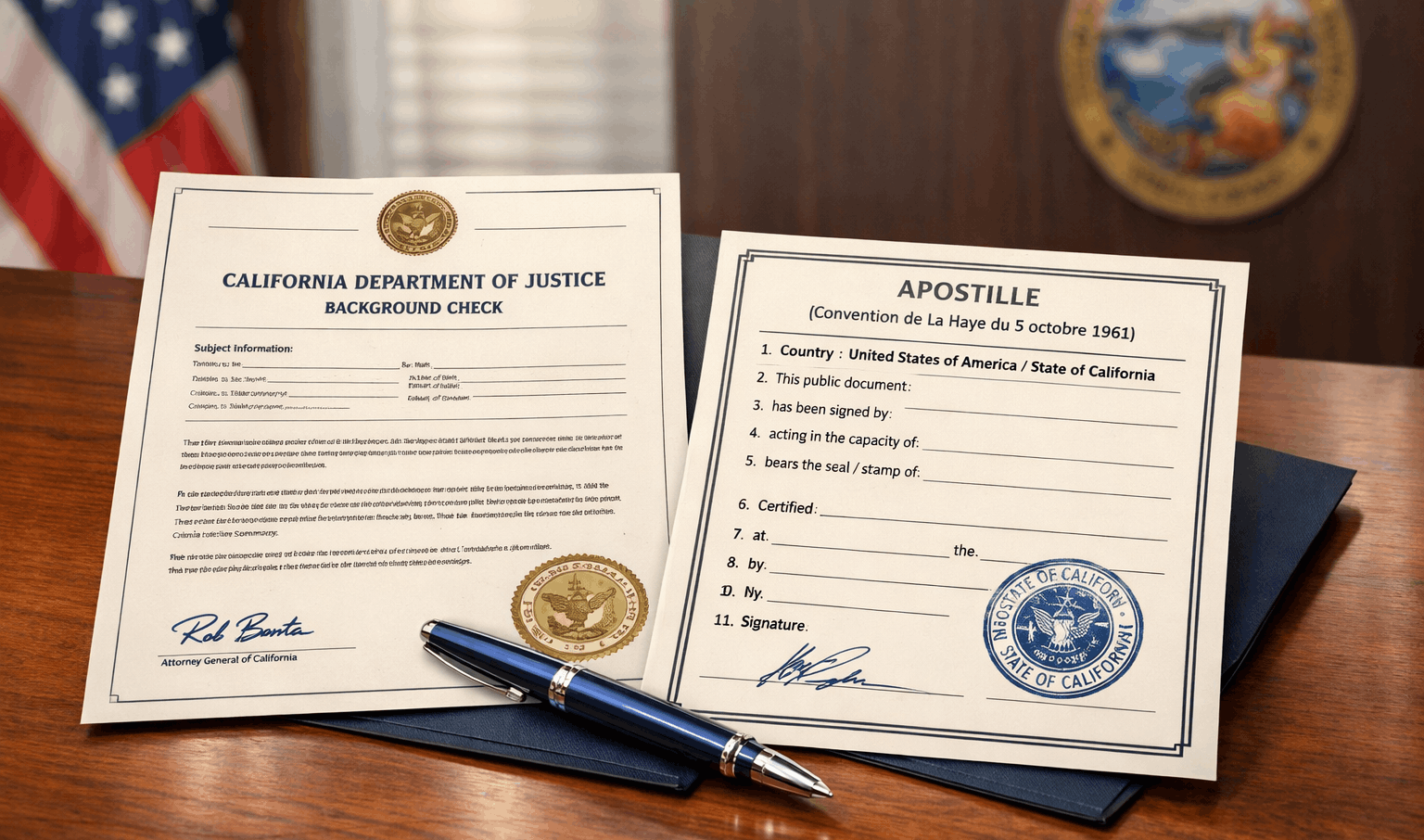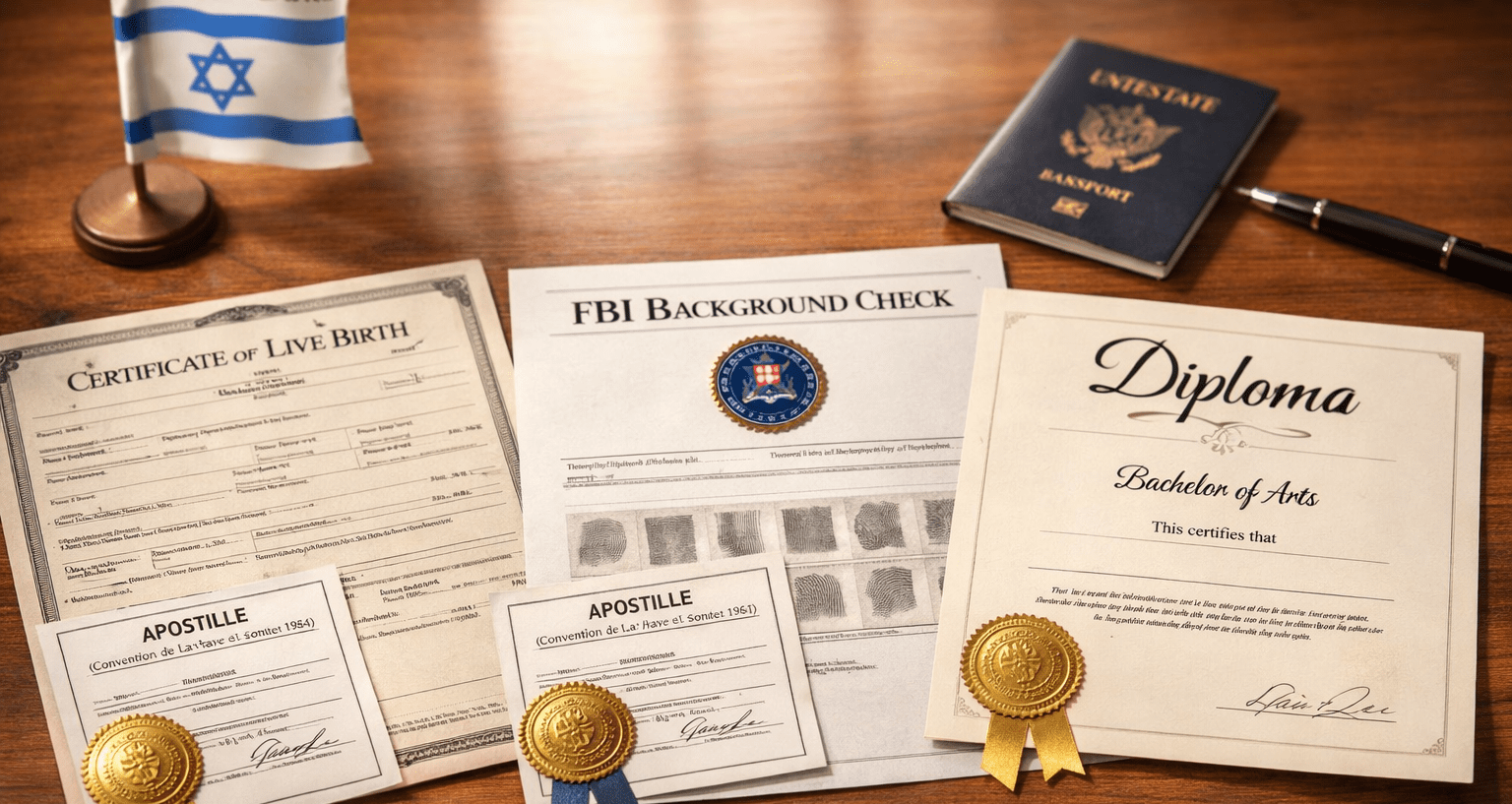
Apostille Guide for International Documents
Navigating international documentation can be challenging, especially if it’s your first time. However, understanding the process doesn’t have to be complicated! An apostille is a global seal that verifies the authenticity of your documents for use across borders. Whether you are moving for personal reasons or business matters, apostille services ensure your paperwork is recognized in foreign countries.
This detailed guide will explain what an apostille is and how to obtain one without hassle. Let’s get started!
What is an Apostille?
Before gaining insights into the step-by-step process, it’s essential to go over the apostille definition — what it is and how it works. Foreign authorities may reject your document without this certificate because they can’t verify its genuineness. No matter if it’s a birth certificate or a distributor agreement, all personal and business paperwork may require an apostille as a form of authentication.
Apostille Meaning in Simple Terms
In essence, an apostille is an official certificate that allows documents to be recognized internationally. It functions like a global notarization, confirming to authorities abroad that the signatures and seals on a document are valid and that the document is legally acceptable. For example, if you want to use your U.S. marriage license in France, an apostille will demonstrate its authenticity to French officials, making sure it is accepted.
Legal Origin: The Hague Apostille Convention of 1961
The Hague Convention established the apostille system to simplify the process of legalizing documents internationally. Countries that have signed the treaty accept the apostille as a single form of authentication. Before this significant change, validating documents for use in foreign countries was a lengthy process involving many steps. Now, with over 120 member countries, the apostille makes cross-border documentation much smoother and faster.
Why Do You Need an Apostille?
Now that you know the apostille’s meaning, you might wonder when an apostille is required. As previously mentioned, an apostille ensures that your documents are recognized for use overseas. Without it, you could face rejection for university admissions or employment opportunities. Let’s review some common situations in which you may need an apostille.
Common Use Cases
Typically, you may need an apostille for:
- Studying abroad: Degrees, transcripts, and certificates
- Visa application: Birth certificates and FBI background checks
- International business: Contracts, agreements, powers of attorney
- Marriage or residency: Affidavits and divorce decrees
This list offers examples but is not comprehensive. Check the requirements of the institution you’re dealing with to ensure you have the correct documents apostilled.
Apostille vs. Notarization vs. Legalization
Here’s how you differentiate these processes:
- Notarization is used to certify a document for domestic use. Frequently, this step must be completed before you can get an apostille attached.
- An apostille authenticates documents for legal use in a Hague Convention country.
- Legalization is completed by the foreign country’s embassy or consulate for documents to be accepted in a non-Hague country.
Select the correct process for your documents by carefully researching the rules of the receiving country.
Which Documents Can Be Apostilled?
Unsure whether your document is eligible for an apostille? The good news is that various papers can be authenticated using this method, from personal certificates to corporate agreements. This section highlights the most common document types that require an apostille, so you can prepare your paperwork properly.
Personal Documents
You need to apostille personal documents when it’s required to prove your identity or civil status abroad. These include birth or death certificates, marriage licenses, divorce decrees, or affidavits of single status. Whether you apply for citizenship overseas or sponsor a family member’s visa, such personal records often have to carry the official seal for international use.
Educational Documents
Diplomas, certificates, or transcripts frequently appear in the apostille-needed document list for those planning to study or work in a foreign country. Universities or employers in the Convention countries ask for proper authentication to confirm your academic credentials. Additionally, you may also need certified translations if the receiving country requests them.
Business & Corporate Documents
An apostille is essential for facilitating international transactions. Common documents that require apostilles include articles of incorporation, business contracts, powers of attorney, and tax filings. This authentication allows foreign governments and business partners to verify the legitimacy of your business papers without issues or delays.
Always double-check the updated regulations of the destination country to determine whether your documents need an apostille.
How the Apostille Process Works (Step-by-Step)
Once you determine which of your documents require an apostille, you’ll be ready to have them authenticated for your overseas journey. Understanding the key steps can save you time and reduce stress, whether you’re handling the process yourself or using a professional service. Let’s explore the details!
Step 1: Identify the Destination Country
Before submitting your apostille request, it’s essential to confirm whether the country where you’ll use the document is part of the Hague Convention. If it is, an apostille is sufficient. If not, you’ll need to follow a more complex process that involves authentication and embassy legalization. A quick online search can save you from unnecessary steps, so make sure to confirm this information first.
Step 2: Prepare the Original Document
Next, ensure your documents are properly prepared for apostille approval. Generally, you will need:
- Original or certified copies; if using a copy, it must be notarized as a true and correct copy (plain photocopies are usually not accepted)
- Clear and unaltered content with visible seals and signatures
- Appropriate notary wording in case your state requires notarization
Check the local rules to avoid outright rejections!
Step 3: Submit to Competent Authority
Once you have your apostille package ready, submit a request to the designated authority, usually the Secretary of State for state-issued documents. For federal paperwork, such as FBI background checks, you should reach out to the U.S. Department of State. It’s highly advisable to confirm the correct jurisdiction, check processing times to plan accordingly, and include the proper fees to prevent delays.
Step 4: Receive the Apostilled Document
Upon approval and issuance, the apostille will be returned as an affixed page to your document. You can either pick it up at the office or have it mailed to your current residential address. Once the apostille is in your hands, review it to ensure that all the information matches your original document before forwarding it to the overseas authority. Now, it’s time to pack for your international trip!
Apostille Process in the United States
It may feel tricky to navigate the approval path for your document authentication, especially since different types of documents require specific procedures. Knowing whether your document was issued by a state or federal government can help you determine where to send your apostille request. This part will clarify the process so you can get it right the first time.
State-Level Apostille (e.g., Birth Certificates)
Most official documents, such as birth certificates, court orders, and powers of attorney, are authenticated at the state level. Therefore, you should submit your documents to the Secretary of State’s office where they were issued for an apostille. For example, if you have a divorce decree from California, you need to obtain an apostille from the California Secretary of State’s office.
Federal-Level Apostille (e.g., FBI Background Check)
Federal documents, including FBI background checks and IRS filings issued by federal agencies, must be sent to the U.S. Department of State for apostille processing. State offices do not have the authority to grant apostille approval for these records.
Apostille vs. Authentication (Non-Hague Countries)
If you’re dealing with non-Hague countries, keep in mind that they require a different process. Instead of simply obtaining an apostille, you’ll need to complete both state-level or federal authentication and seek final approval from the embassy or consulate of the destination country.
Apostille Not Accepted — Now What?
If your apostille is rejected by the destination country, the first step is to double-check if the document meets the specific requirements. Then, determine whether a certified translation is necessary by consulting the relevant authority. Additionally, ensure you follow up with the embassy to see if any extra legalization steps are required for your apostilled document.
Apostille Services: DIY or Use a Professional?
It’s totally up to you to decide whether you want to handle the apostille process yourself or hire an expert. Both options have pros and cons — you should make the decision based on factors such as time, budget, and document complexity. For instance, DIY helps save money, while involving professionals can eliminate obstacles for more complicated cases.
When You Should Consider Professional Help
If you’re wondering if hiring apostille services is ideal for you, consider the following:
- Time sensitivity: The expedited option allows you to cut turnaround time.
- Complex paperwork: Professional assistance navigates requirements better.
- Multiple documents: Bulk submissions are managed more efficiently.
- Commute: Experts save you from long-distance trips to government offices.
Either way, plan accordingly to avoid missing deadlines or itineraries.
Final Tips and Common Mistakes to Avoid
Mistakes can still occur despite the best preparation. Here are some of the most common ones and tips on how to prevent them:
- Submitting to the wrong office. Double-check whether your document is state or federal and confirm the correct mailing address.
- Using the wrong copies. Plain photocopies are often rejected. Ensure you provide either the original document or a notarized or certified copy.
- Incomplete or altered documents. Missing pages, outdated forms, or visible corrections can lead to denial. Review everything carefully.
- Rushing the process. Last-minute submissions can delay your plans. Start early and allow time for mailing and processing.
- Overlooking translation needs. Certain countries will only accept an apostille accompanied by a certified translation. Check this in advance.
- Missing payment or return shipping. Include the correct fees and a prepaid return envelope to avoid delays.
All being said, professional services can be a game-changer, especially in challenging cases. They know the nuances and can speed up the process, so don’t hesitate to consult them if you’re unsure about any steps.
FAQs
How long does it take to get an apostille?
It typically takes between 3 and 15 business days to obtain an apostille, depending on the state or federal office. Expedited services can deliver results in 1–3 days for an additional fee.
How much does it cost?
The cost differs by state, usually ranging from $15 to $20 per document. For federal apostilles, fees start at $20. Expedited or specialized services will increase the total cost.
Do apostilles expire?
No, apostilles do not expire. However, some foreign authorities may require that the document be apostilled within the last six months.
Can I get an apostille for a photocopy?
Generally, plain photocopies aren’t allowed. However, some documents can be photocopied, notarized as a true copy, and then apostilled. Always confirm with the issuing authority.
Is an apostille valid in all countries?
No, an apostille is only accepted by countries that are part of the Hague Convention as a sole method of authentication. Other countries generally require embassy legalization.





